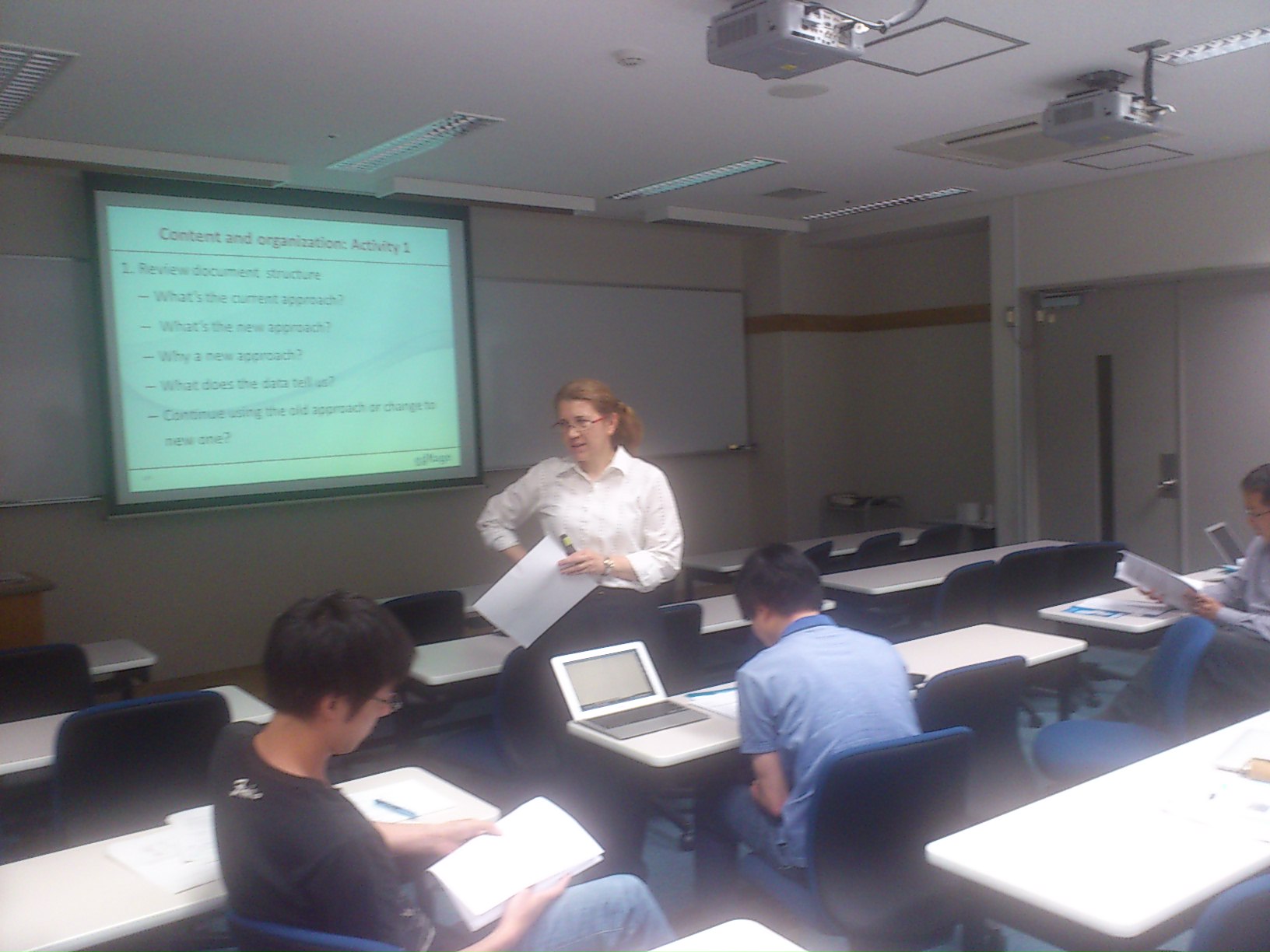Workshop: Workshop at Tokyo University, Dept of Astronomy: Note from the trainer

This write-up has been authored by the trainer, Mary Nishikawa. Through this write up, she summarizes the key takeaways of the 2 hour session.
Note from the trainer:
Here I was, scheduled to give a lecture to cosmologists and theoretical physicists. What was I to do? I did some investigating and found that their area of research is experimental cosmology. When I was a freshman in college, I remembered the philosophy professor was also a cosmologist, but this didn’t seem to be the subject of this group, philosophical ponderings about the beginnings of the universe and the presence of other worlds.
What I did discover was surprising. They use experimental data to predict the presence of other universes: Fascinating.
Now, about reporting their research findings: this was somewhat different from what I had expected, especially since I am coming from a biomedical background.
Data is continuously collected form national astronomical data centers in the US, Japan, Australia, Europe and other countries. The data collected at one center often requires confirmation from another. This kind of collaboration can lead to papers with a great number of authors. Sometimes, the author list fills an entire page, so the question is, “how does an author distinguish himself or herself in the field, when writing a research report?”
One way is you can be the first author on a paper, another, you can make an outrageous statement that everyone will talk about and try to either prove or disprove, and yet another, you can come up with a theory and back it up with detailed calculations that everyone will try to solve.
Finally, the simplest of all, you can write in the present tense when creating your research question.
Why is writing in the present tense so important? It tells everyone that you really believe in what you wrote. You are convinced that your statement will prove to be true, will become a true statement.
Therefore, I always recommend researchers in any field to believe in their research, make a statement that counts, and do not fret if results fail or statement proves incorrect. Write in the present tense.
I believe that at the end of this seminar, everyone was convinced that verb tense was as exciting as cosmology. Well, I hope so at least.
It goes to prove that language used correctly really does matter, that our expression is just as valuable as the research we are reporting on. Our words will remain forever and because of that, we should do everything in our power to write to be proud and be proud of what we write.



